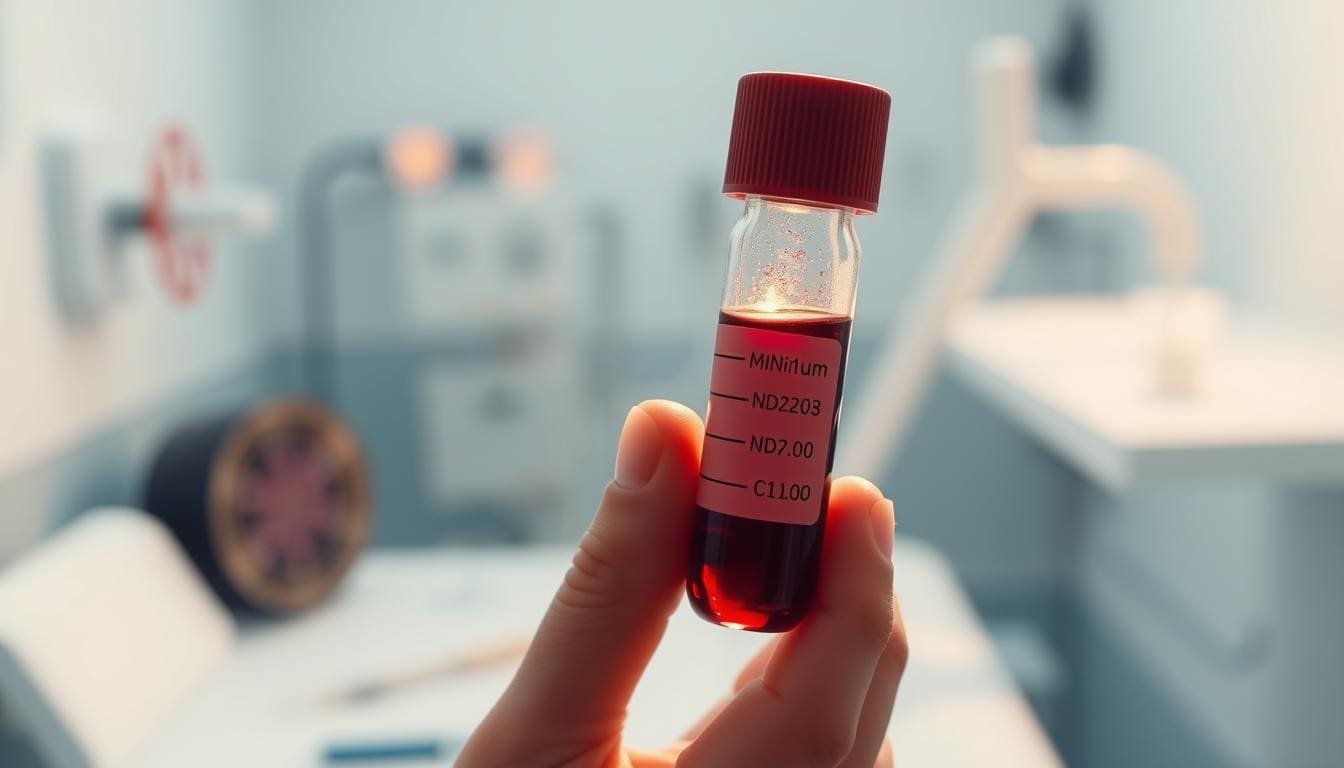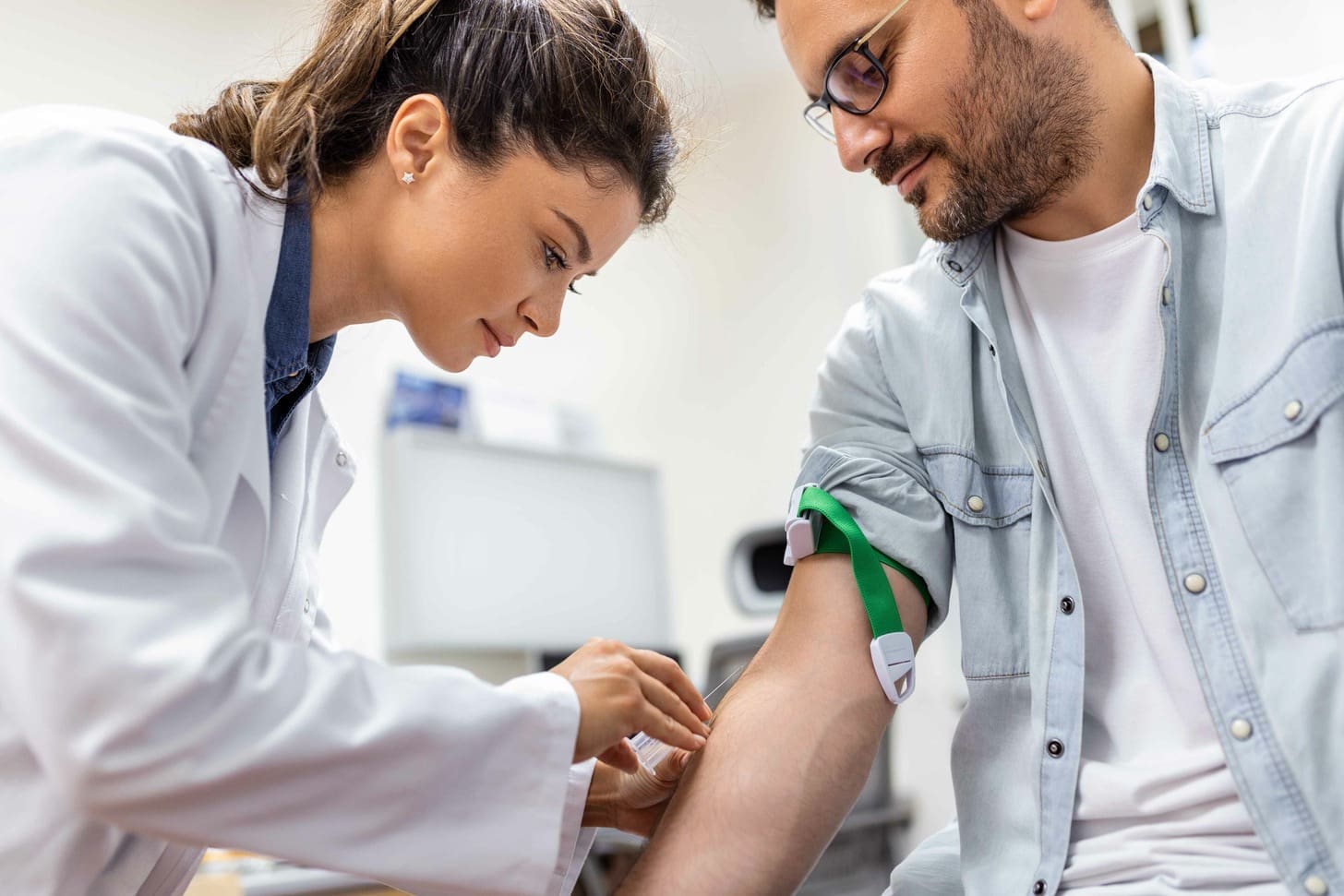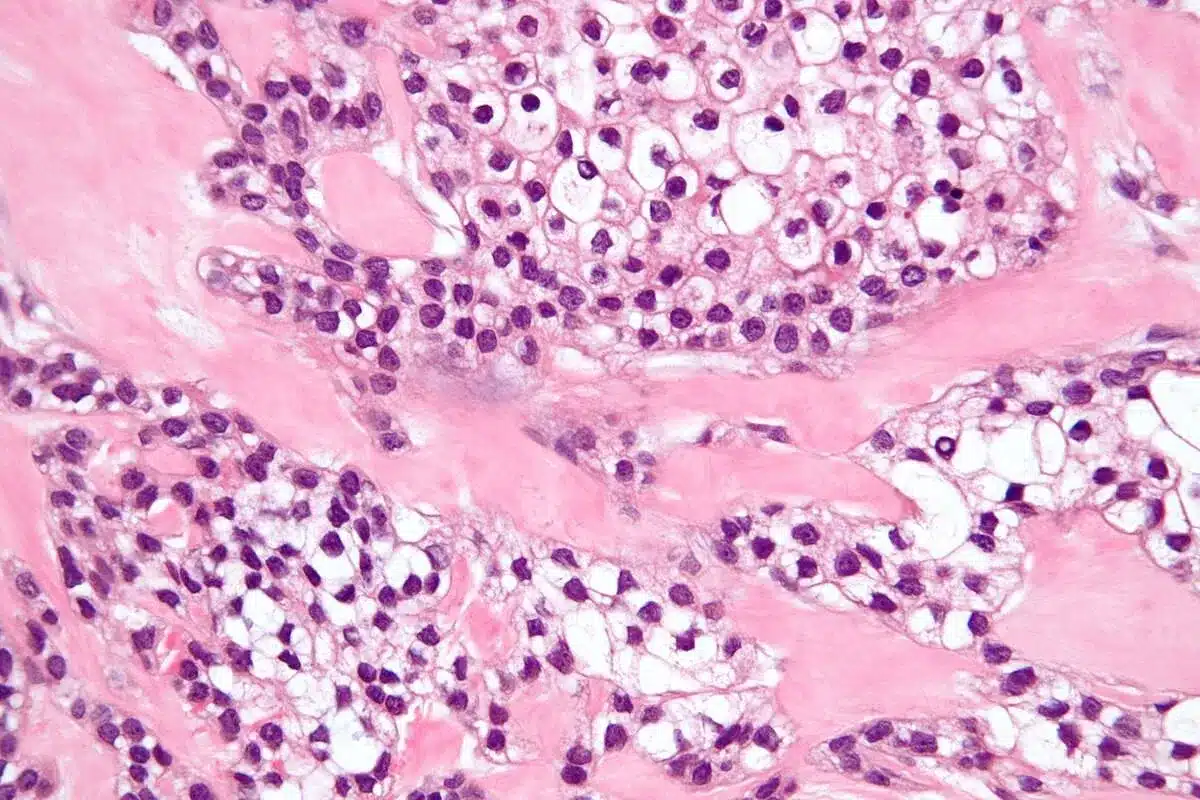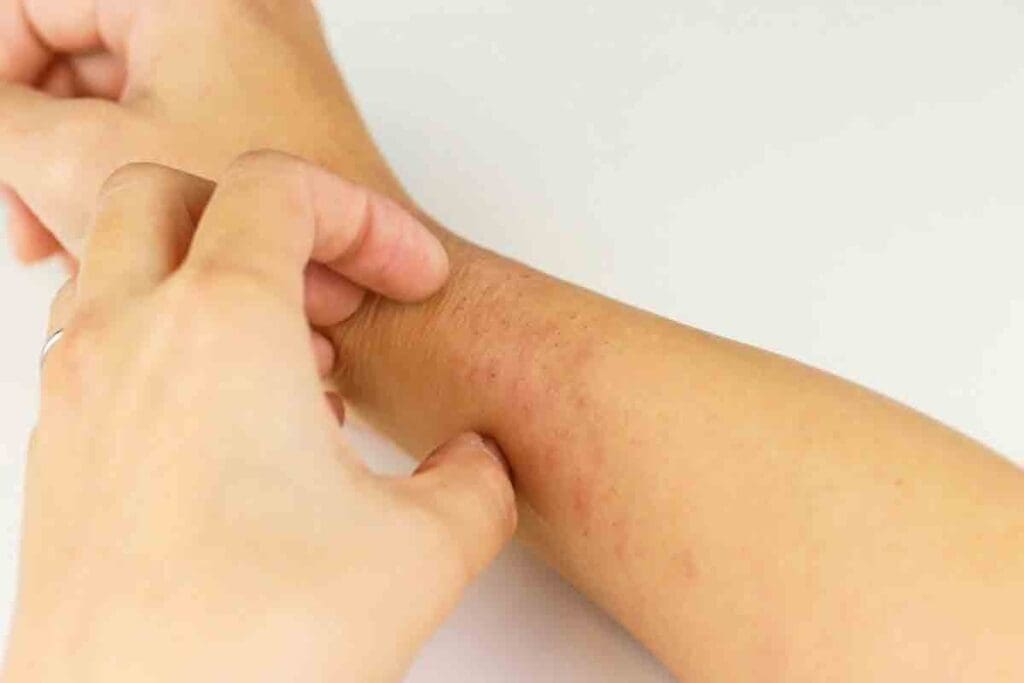
Unexplained bruising and itchy skin can be more than a minor issue. At Liv Hospital, we know these symptoms can point to deeper problems. It’s important to find the cause to give the best care.Discover bruising and itchy skin causes, possible blood disorders, and when to seek medical advice.
As we get older, our skin gets thinner and blood vessels more fragile. This makes us more likely to bruise. Some medicines, like blood thinners, can also make bruising more common. We’ll look at why easy bruising and itchy skin happens, including the science behind it.
Knowing what causes itchy and bruising is vital. It helps us offer top-notch healthcare to patients from around the world.
Key Takeaways
- Unexplained bruising and itchy skin can signal underlying health issues.
- Aging skin becomes thinner and more prone to bruising.
- Certain medications can increase the risk of bruising.
- Biological mechanisms play a significant role in these symptoms.
- Liv Hospital provides complete care for international patients.
The Connection Between Bruising and Itchy Skin
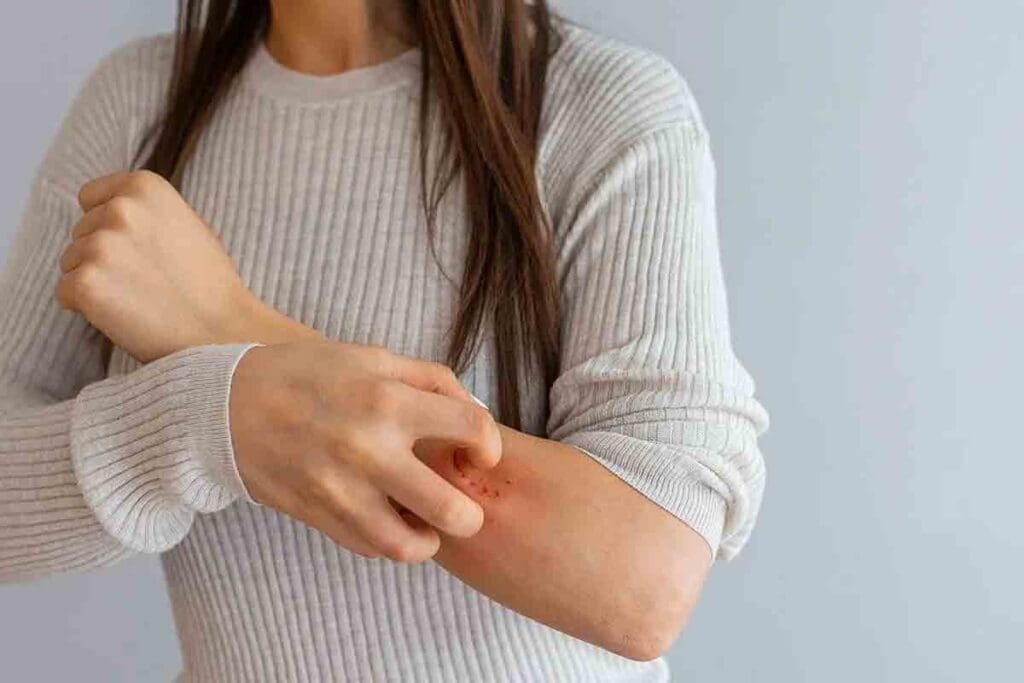
Bruising and itchy skin happening together is quite common. It shows there are deep biological reasons for both. These reasons are linked in many ways.
Common Occurrence Patterns
Bruising and itchy skin can show up in different situations. As a bruise heals, the body sends out immune chemicals. This can make the skin itch. The Mayo Clinic says that as we get older, we bruise more easily. Some medicines can also make us more prone to bruising.
Some common reasons include:
- Changes in skin and blood vessels with age
- Using certain medicines like blood thinners
- Having health issues like liver or blood problems
Why They Often Happen Together
There are several reasons why bruising and itchy skin happen together. When we get hurt and bruise, our body starts an inflammatory response. This response sends out chemicals like histamine, which can make us itch. Also, as the bruise heals, substances like bilirubin can make the skin itch.
Important factors include:
- The body’s healing process and immune chemicals
- Chemicals like histamine causing itchiness
- Bilirubin irritating the skin during healing
Knowing these factors helps us understand why bruising and itchy skin often appear together. It sheds light on the complex biological processes at play.
Understanding the Biological Mechanisms

To understand why we get bruises and itchy skin, we need to look at what happens inside our bodies. Several factors are at play, like the inflammatory response, histamine release, and how bilirubin affects our skin.
The Inflammatory Response
When our skin gets hurt, our body starts an inflammatory process. This means blood vessels get wider, bringing more blood to the hurt area. This can cause bruises. The Cleveland Clinic says bruises happen when blood leaks into the tissue around damaged blood vessels.
During this process, chemicals are released that can make us itch. The inflammatory response is complex, involving many cells and signals. It helps protect and heal us, but can sometimes cause discomfort like itching and irritation.
Histamine Release and Itching
Histamine is a chemical that plays a big role in allergies and inflammation. When it’s released, it can make blood vessels wider and more permeable, causing itching. This is why itchy legs and bruising can be so uncomfortable.
Understanding how histamine leads to itching helps us manage symptoms of bruising and itchy skin.
Bilirubin and Skin Irritation
Bilirubin is a yellow pigment made when the liver breaks down hemoglobin. When bruises heal, bilirubin is left behind. It can irritate the skin, causing itching. This is important when we talk about unexplained itching and bruising on legs, as hemoglobin breakdown products can irritate the skin.
As we get older, our skin gets thinner and more easily irritated. This is why older adults often bruise easily and experience itchy skin. Knowing how these biological processes work helps us find ways to treat these symptoms.
Normal Healing Process and Itchy Bruises
As bruises heal, they go through stages that can cause itching. We’ll look at how itching is part of recovery and what it means.
Stages of Bruise Healing
The healing of a bruise has three stages: inflammation, resorption, and remodeling. In the inflammatory stage, swelling and redness occur. Then, in the resorption stage, the body breaks down the leaked blood, which can make the skin itchy.
Most bruises heal in a couple of weeks, says the Mayo Clinic. During this time, people might feel easy bruising itchy skin as the skin heals. It’s important to know that itching is a sign of skin recovery.
| Stage | Description | Common Symptoms |
| Inflammation | Body’s response to injury | Swelling, redness |
| Resorption | Breakdown of blood in tissues | Itching, color change |
| Remodeling | Rebuilding of tissue | Fading of bruise, skin normalization |
When Itching Is Part of Recovery
Itching during healing often happens in the resorption stage. This is when the body breaks down blood products. It can also cause itchy rash and bruising, mainly if the skin is sensitive or if there are conditions like eczema or allergies.
Some people might feel bruising easily itchy skin as the skin heals. It’s key to tell normal itching from itching that might mean a problem needs medical help.
Age-Related Factors in Bruising and Itchy Skin
As we get older, our skin changes a lot. These changes can make us bruise easily and feel itchy. We’ll look at how aging affects our skin, making it more likely for us to bruise and itch.
Changes in Skin Structure With Age
Our skin changes a lot as we age. It gets thinner and loses its fatty layer, making it easier to bruise. It loses collagen and elastin, which are important for its strength and flexibility. This makes it harder for our skin to protect itself and keep its natural barrier.
Our skin’s moisture barrier also gets weaker with age. This can cause dryness and itchiness. Older adults often have dry skin that can crack and get inflamed. This makes itchiness and discomfort worse. Also, our skin cells don’t turn over as fast, leading to a buildup of dead cells. This can cause itchiness and irritation.
Blood Vessel Fragility in Older Adults
Blood vessels also get weaker with age. Their walls become more fragile and can’t handle minor injuries as well. This makes them more likely to break and cause bruising. The loss of tissue around blood vessels makes them even more prone to rupture. This is why older adults often get easy bruising.
“The aging process affects the skin and blood vessels, making older adults more prone to bruising and itchy skin. Understanding these changes is key to managing these symptoms.”
Some medications or health issues, like liver disease, can make bruising and itchiness worse. It’s important for older adults to talk to their doctor if they’re experiencing these symptoms. This can help find out if there’s an underlying condition that needs treatment.
Medical Conditions Causing Bruising and Itchy Skin
Bruising and itchy skin can be signs of many health problems. It’s important to know when to see a doctor. We’ll look at several conditions that can cause these symptoms.
Liver Disorders
Liver problems can make your skin itchy and bruise easily. The liver helps clean the blood and make proteins for clotting. Issues like cirrhosis and hepatitis can cause these symptoms.
Cirrhosis is a serious liver disease. It happens when the liver gets scarred. This makes it hard for the liver to detoxify the blood and clot properly, leading to itchy skin and bruising.
Blood Disorders
Blood disorders can also cause skin problems. For example, leukemia can affect blood cell production. This can lead to bruising and itching.
The Leukemia & Lymphoma Society says blood cancers like leukemia can cause these symptoms. It’s because the body can’t make normal blood cells.
Vascular Conditions
Vascular conditions affect blood vessels. They can cause skin problems like bruising and itching. For instance, vasculitis is an inflammation of blood vessels.
Unexplained bruising and itching on legs might be due to vascular issues. This includes poor circulation and varicose veins.
Autoimmune Diseases
Autoimmune diseases make the body attack its own tissues. This can cause skin problems like bruising and itching. Lupus is an example of such a disease.
An itchy rash with bruising could be a sign of an autoimmune disease. It’s important to get a proper diagnosis and treatment.
It’s key to know what medical conditions can cause bruising and itchy skin. We’ve talked about liver, blood, vascular, and autoimmune disorders that can lead to these symptoms.
| Condition | Symptoms | Possible Causes |
| Liver Disorders | Bruising, itchy skin | Cirrhosis, hepatitis |
| Blood Disorders | Bruising, itchy skin, anemia | Leukemia, bleeding disorders |
| Vascular Conditions | Bruising, itchy skin, poor circulation | Vasculitis, varicose veins |
| Autoimmune Diseases | Itchy rash, bruising, inflammation | Lupus, other autoimmune disorders |
Medications That Can Cause Easy Bruising and Itchy Skin
Medications are important for our health, but some can cause side effects like bruising and itchy skin. Some drugs can make it harder for the body to heal and respond to injuries. The Mayo Clinic says that certain drugs, like blood thinners and corticosteroids, can make bruising more likely.
Blood Thinners and Anticoagulants
Blood thinners and anticoagulants help prevent blood clots. They are key in preventing strokes and heart problems. But, they can also make it easier to bruise, even from small injuries. This can lead to itchy skin and discomfort.
Medications like warfarin, aspirin, dabigatran, and rivaroxaban are examples. People taking these should be careful to avoid injuries and watch for signs of bruising.
Corticosteroids
Corticosteroids reduce inflammation and suppress the immune system. They are used for asthma, arthritis, and skin allergies. But, long-term use can make the skin thinner and more prone to bruising. Itchy skin is also a possible side effect, due to dryness and irritation.
It’s important for those on corticosteroids to check their skin regularly. They should tell their doctor about any changes. Adjusting the dosage or switching medications might help.
Other Medications and Their Effects
Other drugs can also cause bruising and itchy skin. For example, some antibiotics and antifungal medications can lead to skin reactions. Chemotherapy drugs can make the skin more sensitive and prone to bruising.
Talking to your doctor about your medications is key. If you have persistent or severe bruising and itchy skin, they can help. They might adjust your medications or suggest treatments to manage these side effects.
Don’t ignore itchy skin rashes with bruising. They could be a sign of a bigger problem. If you’re experiencing these symptoms, see a doctor to check for underlying conditions.
Skin Conditions Associated With Itchy Rashes and Bruising
Many skin conditions can cause itchy rashes and bruising. These issues can greatly affect a person’s life. They often come from genetics, the environment, and the immune system.
Eczema and Dermatitis
Eczema and dermatitis are terms for a condition with itchy, inflamed skin. Eczema makes the skin dry and prone to bruising. Dermatitis causes skin irritation and inflammation, leading to itchy rashes.
Both conditions weaken the skin’s barrier. This makes it more likely to react to irritants and bruise.
Allergic Reactions
Allergic reactions happen when the body reacts to something foreign. This can show up as itchy rashes or hives on the skin. In severe cases, it can also cause bruising because of fragile blood vessels.
Common allergens include foods, plants, and chemicals in skincare. It’s important to know and avoid these to manage symptoms.
Vasculitis
Vasculitis is inflammation of the blood vessels. It can cause itchy rashes and bruising. This happens when the immune system mistakenly attacks the blood vessels, causing inflammation and damage.
Vasculitis can range from mild to severe. Treatment focuses on finding the cause and reducing inflammation.
It’s key to understand these skin conditions for effective treatment. Recognizing symptoms early helps get the right medical care. This can ease discomfort and prevent further issues.
Unexplained Itching and Bruising on Legs
Itching and bruising on the legs without a clear reason can be annoying. It might signal a more serious issue. We’ll look into possible causes, focusing on vascular and metabolic problems.
Vascular Issues Specific to Lower Extremities
Vascular problems are a big worry for unexplained itching and bruising on the legs. The Cleveland Clinic says poor circulation often causes these symptoms. When blood flow is cut off, the skin gets irritated, leading to itching and bruising.
Some vascular conditions that might cause these symptoms include:
- Chronic venous insufficiency
- Varicose veins
- Deep vein thrombosis
These conditions weaken veins, causing blood to pool and leading to inflammation. This can result in itching and bruising.
Metabolic Causes
Metabolic disorders can also lead to unexplained itching and bruising on the legs. Conditions like diabetes and kidney disease can make it hard for the body to heal and respond to injury. This can cause these symptoms.
| Metabolic Condition | Possible Effects on the Skin |
| Diabetes | Poor circulation, nerve damage, itching |
| Kidney Disease | Fluid retention, itching, bruising |
It’s important to find out why you have unexplained itching and bruising on your legs. This helps in managing and treating the issue. We suggest talking to a healthcare professional for a proper diagnosis and treatment plan.
When to Seek Medical Attention
It’s important to know when to see a doctor for bruising and itchy skin. Sometimes, these signs are just minor issues. But if they keep happening or get worse, it could mean something serious is going on.
Warning Signs and Red Flags
Some symptoms with bruising and itchy skin need you to see a doctor right away. Look out for:
- Severe or spreading bruising: Big, painful, or growing bruises might mean a bleeding problem or something serious.
- Persistent itching: Itching that won’t stop, is very bad, or comes with rash or redness could be an allergy, skin issue, or internal disease.
- Additional symptoms: Feeling feverish, losing weight, or getting tired with bruising and itchy skin might point to an infection, autoimmune disease, or cancer.
The Mayo Clinic says if you bruise easily, you should see a doctor. This can help find any health problems you might have.
Diagnostic Approaches
When you go to the doctor for bruising and itchy skin, they will use different tests to find out why. These tests might include:
| Diagnostic Test | Purpose |
| Complete Blood Count (CBC) | To check for blood disorders, infections, or inflammation. |
| Liver Function Tests | To assess liver health and rule out liver disorders. |
| Skin Biopsy | To examine skin tissue for conditions like dermatitis or vasculitis. |
Knowing why you get itchy skin and bruises is key to treating it right. By watching for warning signs and getting tested, you can get the right care for what’s really going on.
Conclusion
It’s important to know why you might bruise easily and have itchy skin. Many things can cause this, like getting older, health issues, and some medicines.
If you find that you bruise a lot or have itchy skin that won’t go away, see a doctor. The Cleveland Clinic says most bruises heal in a couple of weeks. But, if you have a serious problem, you need a doctor to check it out.
At Liv Hospital, we offer top-notch medical care and support for patients from around the world. Our team works hard to give you the best healthcare. We help with bruising and itchy skin, and other health problems too.
Getting medical help quickly can really help you feel better. If you’re dealing with itchy and bruising skin, talk to a doctor. They can help figure out what’s going on and how to fix it.
FAQ
What are the common causes of bruising and itchy skin?
Many things can cause bruising and itchy skin. Aging makes our skin thinner and blood vessels more fragile. This makes us more likely to bruise. Some medicines, like blood thinners, can also increase bruising risk.
Why do bruising and itchy skin often occur together?
When a bruise heals, the body releases chemicals that can itch. These chemicals, like histamine and bilirubin, make us feel itchy.
What is the role of histamine in itchy skin?
Histamine is a chemical from our immune system. It makes blood vessels wider, leading to more blood flow and itchiness.
Can certain medical conditions cause bruising and itchy skin?
Yes, some medical conditions can cause these symptoms. Liver, blood, vascular, and autoimmune diseases can affect healing and cause bruising and itchiness.
What medications can cause easy bruising and itchy skin?
Some medicines, like blood thinners and corticosteroids, can cause easy bruising and itchiness. They affect how our body heals and responds to injury.
What are some skin conditions associated with itchy rashes and bruising?
Conditions like eczema and allergic reactions can cause itchy rashes and bruising. They disrupt the skin’s natural barrier, leading to symptoms.
Why do I experience unexplained itching and bruising on my legs?
Unexplained itching and bruising on legs can be due to vascular issues or metabolic causes. It’s important to see a doctor to find out why.
When should I seek medical attention for bruising and itchy skin?
See a doctor if you have persistent or severe bruising and itchiness. Also, if you notice signs like increased pain or swelling.
What diagnostic approaches are used to identify underlying health conditions causing bruising and itchy skin?
Doctors use physical exams, medical history, lab tests, and imaging to find the cause of symptoms.
Can age-related changes contribute to bruising and itchy skin?
Yes, aging can lead to bruising and itchiness. As we age, our skin loses collagen and elasticity, making it more prone to irritation.
Reference
- Huang, A. H. (2019). Pruritus associated with commonly prescribed medications. Current Dermatology Reports, 8(3), 114-121. https://pmc.ncbi.nlm.nih.gov/articles/PMC6789849/


